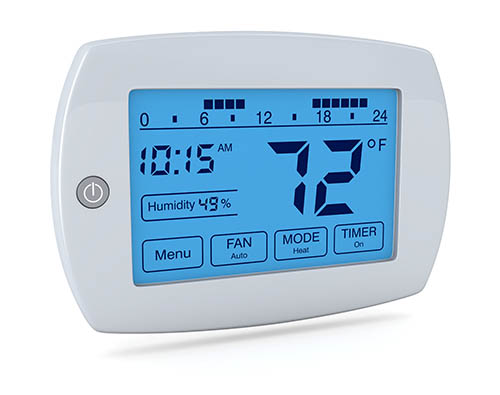Reduce Your Home’s Carbon Footprint With These Energy-Saving Tips
 Do you believe that humans are changing the climate? As of today, the debate over carbon dioxide and climate change continues to rage. But regardless of your political standpoint, there’s always a case for reducing electricity use. Because who doesn’t like saving money, right?
Do you believe that humans are changing the climate? As of today, the debate over carbon dioxide and climate change continues to rage. But regardless of your political standpoint, there’s always a case for reducing electricity use. Because who doesn’t like saving money, right?
Let’s explore a few ways that you can save energy while reducing your home’s carbon footprint.
Leverage The Power Of Automation
The technology behind home automation is improving at an amazing rate. Thermostats from companies like Nest make home heating and cooling simple. They learn from your use to automatically set temperatures up and down as needed. Going to be home late from work? No problem — you can use your smartphone to ensure your heat doesn’t come on until later.
Wash Cold, Hang Dry
You might not be aware of this, but cold water washing makes sense. Most washing machines and detergents are just as efficient with cold water as hot. So it makes sense to switch to washing in cold, especially if you have a newer washing machine.
To cut back even more, hang your clothes to dry instead of using the dryer. The technology behind clothes dryers hasn’t improved much over time. They still rely on warm air, forced ventilation and spinning around. All of which use a lot of energy.
Note: if you have to use your dryer, add a clean, dry towel to each load. Adding a towel will help your clothes to dry faster, thus saving you both time and money.
Modernize Your Home Lighting
Have you made the switch to power-efficient LED light bulbs yet? This one change can save an immense amount of electricity depending on the size of your home. And you can take things a step further by automating your home lighting as well. Systems from companies like Philips allow you to turn lights up, down and off as needed. You can also control these from your smartphone.
Kill Off The Vampires
Finally, watch for appliances and accessories that draw power when they’re not in use. ‘Electricity vampires’ like smartphone chargers, laptops and televisions can draw power 24/7. It’s a bit of a pain to have to unplug everything all the time. Instead, consider having these appliances plugged in to power bars. When you’re finished using them, you can switch the power bar off and go on with your day.
The above are just a few ways that you can reduce your home’s carbon footprint. If you’re interested in upgrading to a power-smart home, talk to your trusted mortgage professional to get started today.

 Real estate may be one of the most important things that you will ever invest in, but it can also be a useful means of increasing your financial well-being. If you’re getting into the real estate game and are wondering how you can make use of investing in homes to improve your net worth, here are three ways you can successfully work towards a real estate investment portfolio that will make you proud.
Real estate may be one of the most important things that you will ever invest in, but it can also be a useful means of increasing your financial well-being. If you’re getting into the real estate game and are wondering how you can make use of investing in homes to improve your net worth, here are three ways you can successfully work towards a real estate investment portfolio that will make you proud. Autumn is a popular time for new home buyers to start looking for their first house or condo. But with that down payment looming, everybody could use a bit of help saving up to make that bulk payment a little less intimidating.
Autumn is a popular time for new home buyers to start looking for their first house or condo. But with that down payment looming, everybody could use a bit of help saving up to make that bulk payment a little less intimidating.